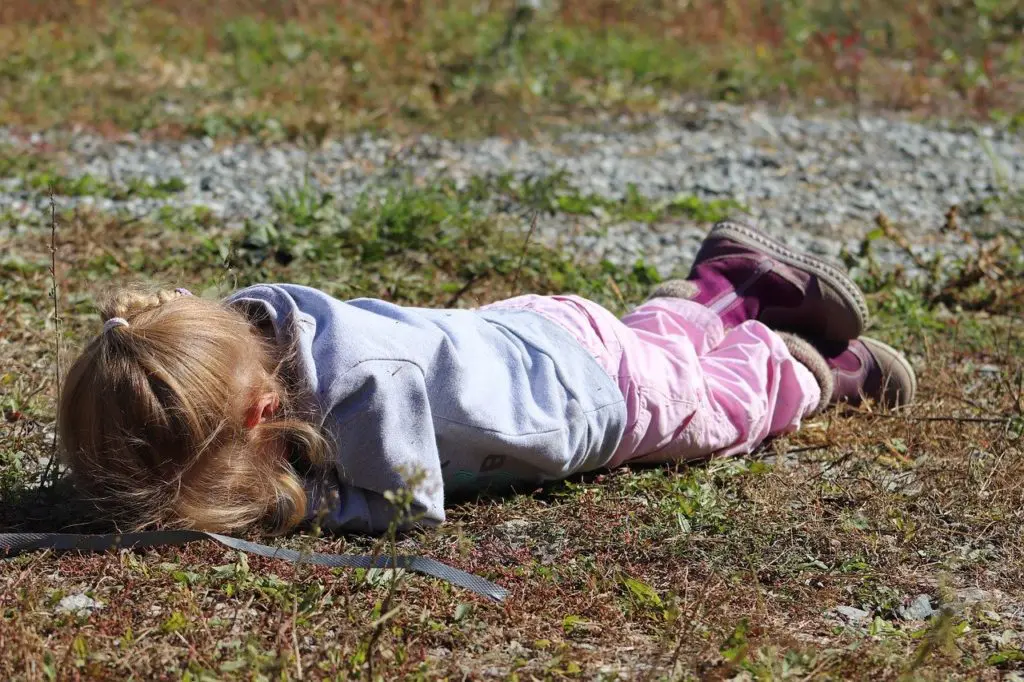It’s so embarrassing being that parent who always gets called about your child misbehaving or throwing tantrums while the rest of the kids their age are calm and collected. Soon as they get home, undress their school clothes, they seem angelic and incapable of misbehaving. The whole issue is strange and hard to make sense of. Few days down the line after resolving the first matter, a new issue arises and this cycle continues for months.
Trust me I’ve been down this road before. Normally such behaviors do tend to get better with time. But It becomes a heck of a job for the teachers at school to deal with. It’s always a difficult thing to understand when a child is acting out at school but not at home.
Preschoolers normally have a hard time settling into a new class. Adapting to new surroundings can be difficult, especially for children. But with time it usually gets better when the child feels comfortable in the school setting. That sort of behavior of throwing tantrums begins to fade slowly. As they detach from the home bond and develop social skills and relations.

Diagnosing the Bad Behavior
It always comes as a shock to receive a phone call when your child has been in school for a while now. But before jumping to conclusions it’s always best to ask your child about what could be bothering them. Children at a young age are not as secretive and the likelihood of them telling you the problem is more likely.
You might be wondering what could possibly be bothering my child. Well, a number of issues could be the problem. bullies, the content they learn, or just upsetting friends. Nonetheless, you must have a conversation with them about what’s really bothering them.
Kids generally have a difficult time dealing with anything even if they happen to be in the wrong. It’s a flaw that even us as adults have, only that we have learned to reason better and control our emotions.
Trying to understand children’s issues can feel silly and most times we struggle to take it seriously. We must understand their fragile nature and try to understand how that could upset them. They just want to be heard hence the whining that never stops.
After well discussing the matter with them. Give them the assurance that they can deal with any problem if they come and talk to you about it. The role of a good listening parent is vital, in communicating with children. Coming off as a harsh uncaring guardian will lead to a stale and unopen relationship with your child.
Figuring out Why
The first issue to figuring out why your child is acting out at school but not at home is figuring out why they are acting that way. From there you can look to remedy the reason.
For the percentage of children with shyness or introverted behavior, they tend to be more secretive. Most of your efforts to get them to open up seem to fail. Before looking into other measures, try to create a safe space where they feel free to open up.
You can get your child to open up to you by engaging in frequent conversations about their school day and discuss it in detail. They’ll soon realize how easy and comfortable it is confiding in you. As parents, it’s our duty to help them navigate the school and home balance. They are not equipped to do so yet. If your child is struggling to make sense of their problems here’s a list of a few things to look out for which could help
Learning Disability
learning disabilities can be a common reason to act out. Usually, when kids associate with each other in a playroom they expect to be able to do certain things the way other kids are doing them or even better.
Learning disabilities are not anything to be ashamed of but must be addressed early enough before it affects their confidence. It’s also best to alert the teachers as well so they can adjust the content intake at a pace they are able to do.
Bullies
In other cases, a child may be acting up to issues that they have never dealt with before. For example, a child who is being bullied at school starts to act up as a way of telling their parents that they would rather be at home where they find peace and quiet than go to school to deal with people that hurt them.
Getting bullied is not a matter to push aside it must be addressed quickly. The teachers must be alerted immediately and have them deal with it. Seek the
Attention of the Adults
The fore those that are not getting attention at home, acting out at school can be a way to get their parent’s attention. Children need our attention and affection and will act out to get it. This behavior is common with younger children between the ages of 4-10. This is a time where spending time with your children is crucial.
It is not only their parents but sometimes children may act out to get the attention of their teachers. When they realize they aren’t winning they start whining and unleash bad behavior. I recommend setting up play dates with their friends, especially on weekends. Get them used to the separation and Independence from adults.

They are Learning Life’s not Fair
Children have this biased way of viewing life, mainly because they grow up in a situation where everything goes their way. You won’t be surprised to find that the outbursts they have at school are a result of an inability to control emotions when stuff doesn’t go their way. Our duty is to teach them life as it is. You can let them down slowly by showing them examples of unfair situations in life. Teach them to handle it better.
I sometimes create unfair scenarios at home to see how they’ll react. I sometimes turn off the television when they are watching their favorite program. Ask them to finish up some homework or do chores. They’ll whine at first, expect it. You can then use this example to teach them the valuable lesson of life being unfair.
Our children are what we teach them, so it’s vital that they get enough good life lesson from us at a young age.
Overly Defending Your Child
As parents, we often lean towards defending our children when they misbehave. We even try to lie sometimes on their behalf. You’re making a big mistake if your child is mistreating others or violating school property. Let them face the consequences of their actions. This is an important lesson to teach our children.
Parents should learn to avoid shielding their children from facing responsibility. Your responsibility as a parent is to explain to them briefly about what they did. Show them why it’s wrong. Lastly, you must leave them with the task of rectifying it, after discussing ways of doing so.
Final Thoughts
It can be very concerning when a child is acting out at school and not at home. Rather than punishing them for acting out at school, make an effort to find the cause of their behavior.
Acting out is not going to stop until we take action to find the root cause and deal with it.
